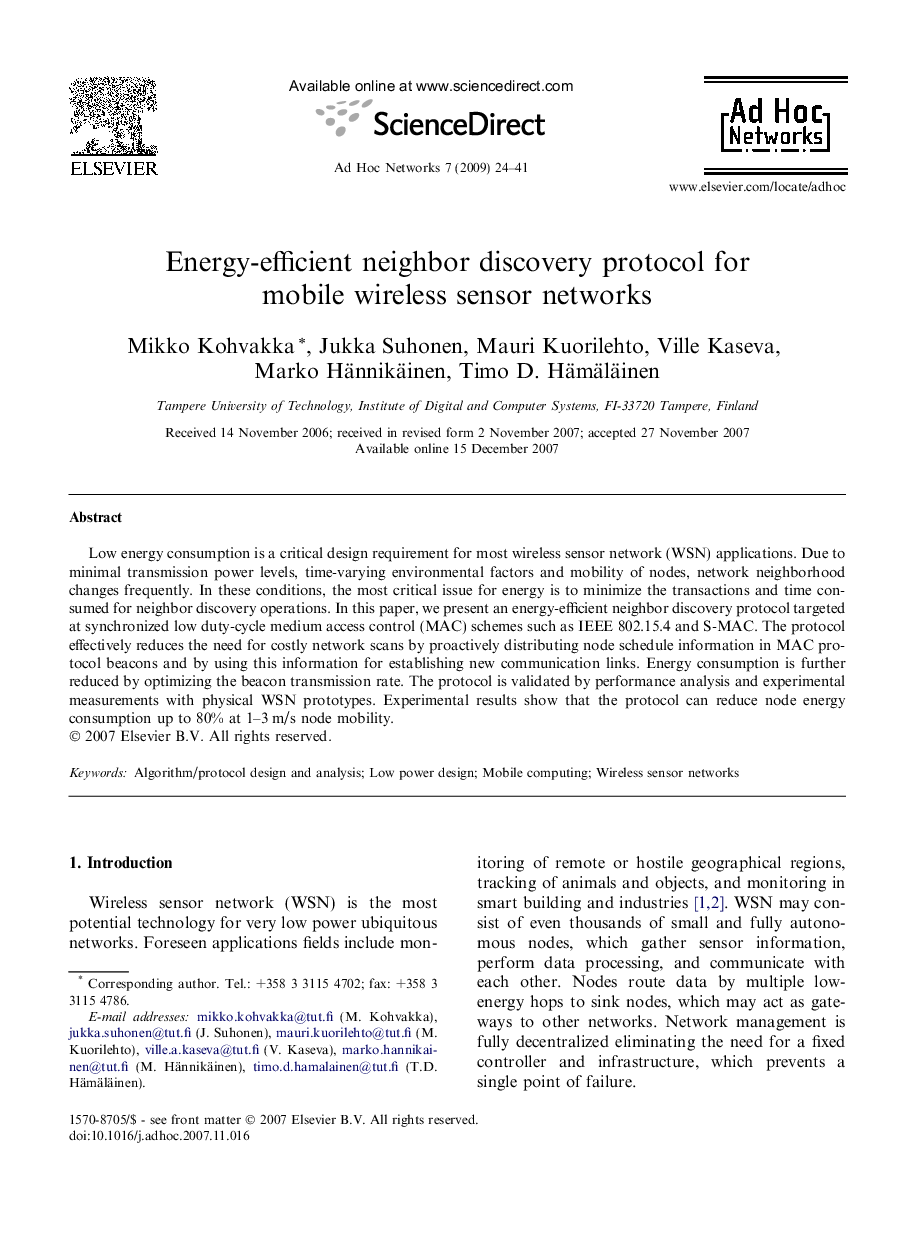| Article ID | Journal | Published Year | Pages | File Type |
|---|---|---|---|---|
| 448490 | Ad Hoc Networks | 2009 | 18 Pages |
Low energy consumption is a critical design requirement for most wireless sensor network (WSN) applications. Due to minimal transmission power levels, time-varying environmental factors and mobility of nodes, network neighborhood changes frequently. In these conditions, the most critical issue for energy is to minimize the transactions and time consumed for neighbor discovery operations. In this paper, we present an energy-efficient neighbor discovery protocol targeted at synchronized low duty-cycle medium access control (MAC) schemes such as IEEE 802.15.4 and S-MAC. The protocol effectively reduces the need for costly network scans by proactively distributing node schedule information in MAC protocol beacons and by using this information for establishing new communication links. Energy consumption is further reduced by optimizing the beacon transmission rate. The protocol is validated by performance analysis and experimental measurements with physical WSN prototypes. Experimental results show that the protocol can reduce node energy consumption up to 80% at 1–3 m/s node mobility.
